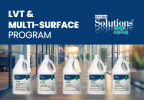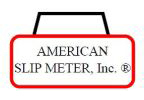IHSA Concrete Task Testing Shows Hazards |
|
| Contributed by BSM Staff | |
TORONTO -- Exposure to silica over time can lead to a serious lung disease, according to recent findings from the Infrastructure Health and Safety Association, a Canadian provider of information and training that control and eliminate safety hazards in the workplace. After conducting a silica and dust exposure assessment for six work tasks in the concrete floor trade, the IHSA has published a summary of its findings, which includes the following: “Respirable silica exposure over time can lead to silicosis, a serious lung disease. Silica is present in concrete dust, making it essential to minimize worker exposure to these hazards.” IHSA assessed exposure levels during the following tasks: use of a hand grinder, chipping concrete, cutting concrete, sandblasting, shot blasting and mixing concrete. The bulletin features a chart showing the work task and associated exposure readings during the field assessment. Sandblasting (outside) had the highest exposure to respirable dust, at 16.9 milligrams per cubic meter. That’s more than five times the permissible exposure limit of 3 mgs per cubic meter. Other work tasks that resulted in exposure to respirable dust above the PEL (expressed as milligrams per cubic meter):
Two other tasks were listed as “caution when using action controls:” Chipping (outside) and soff-cutting (green concrete). Only one task in the silica or cristobalite columns was above the PEL. Hand grinding (close) had an exposure to quartz of 0.113 mgs per cubic meter. The PEL for quartz is 0.1. IHSA suggest the following to control exposure levels:
“A well-fitted respirator can reduce dust and silica exposure by a factor of 10,” the bulletin states. “Without a respirator, workers performing sandblasting, chipping, cutting concrete and hand grinding would exceed their time-weighted average. A NIOSH-approved N95 mask must be worn when cutting, grinding or modifying dry-hardened concrete.” For more information, go to www.ihsa.ca.
|
|









